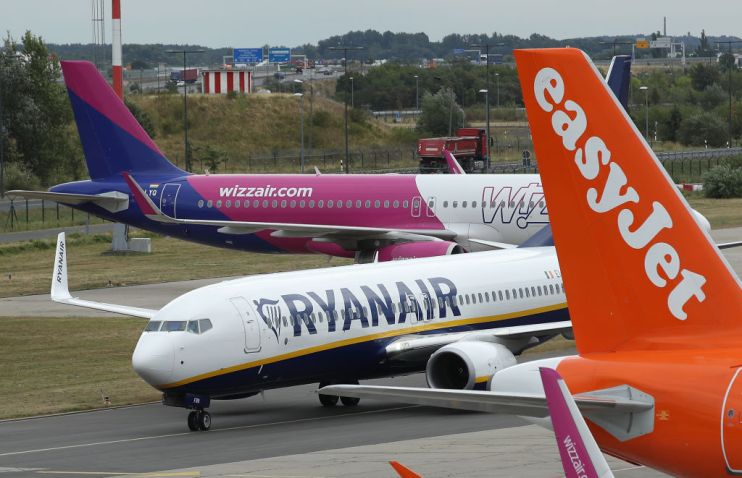Ryanair and Wizz Air caught up in fresh greenwashing allegations

Ryanair and Wizz Air are facing fresh allegations of greenwashing after the consumer organisation BEUC filed a complaint to the European Commission, naming them among the 17 European airlines accused of making misleading climate-related claims.
The BEUC – which represents 46 consumer organisations in the European bloc – are calling for a continent-wide investigation in order to stop the airlines making claims that “give consumers the impression that flying is sustainable.”
‘Green fares’ charged as a result of these claims – which include inflating the benefits of carbon offsets and implying that aviation can become climate neutral amid an anticipated boom in travel – should be reimbursed.
A host of major Europe-based airlines have been caught up in the complaints, including Hungarian Wizz Air, Irish Ryanair, Germany’s flagship carrier Lufthansa and Finland’s Finnair.
One major concern of the group surrounds so-called sustainable aviation fuels (SAFs) – biofuels offered up by the airline sector as an alternative to traditional jet fuel.
Some airlines, the BEUC say, are “misleading consumers” by charging them more as a contribution to SAF development, despite the fact the fuel-alternative is “not market-ready,” and likely to only meet a small proportion of airlines’ jet fuel consumption by 2030.
It comes as debate heats up over whether SAF – touted as critical in securing a zero-emission future for airlines – is a viable solution for carriers in meeting emission reduction targets, as the fuel is expected to stay at least four times higher in cost until 2050 than jet fuel alternatives.
Last month, Boeing CEO David Calhoun warned that SAF would never achieve the price of jet fuel.
Ursula Pachl, the BEUC’s deputy director general, said: “whether you pay a ‘green fare’ or not, your flight will still emit climate-harmful gases.”
“Technological solutions to decarbonise aviation won’t become a massive-scale reality any time soon, so depicting flying as a sustainable mode of transport is pure greenwashing. At a time when many want to travel more sustainably, airlines should urgently stop offering consumers a fake peace of mind.”
Rory Boland, travel editor of consumer group Which said: “Millions of Britons want to make greener choices when travelling, but many airlines make this purposely difficult by misleading them about environmental commitments and carbon emissions.”
“It’s utterly cynical for any airline to use unfounded green claims to boost sales. Consumers must be given accurate information at the time of booking so that they can make an informed decision before purchasing a ticket.”
A spokesperson for Airlines for Europe – which represents a host of the major airlines caught up in the allegations – said “strong sustainability criteria for offsets or carbon credits as for SAF are crucial for sector credibility.”
“In our climate strategy, we hold ambitious goals and actively seek to engage our customers in the conversation. We continuously learn and improve our sustainability communication, carefully reviewing all messaging to enhance transparency.”
The spokesperson added that the significance of offsets will likely “diminish” as the industry “brings in more fuel-efficient aircraft and invests in more SAF” to reach net zero.
Yvonne Moynihan, corporate and ESG officer at Wizz Air, said: “The immediate focus to further reduce our carbon intensity and reach our 2030 target is fleet renewal, fuel saving initiatives and the use of sustainable aviation fuel.”
Moynihan stressed that in Wizz Air’s case, complaints over green fares are unwarranted, as the company does not have charges “for customers related to sustainable aviation fuel”.
“Our SAF strategy includes securing off-take agreements with suppliers for the future and equity investments in SAF research and development,” she said.
Moynihan added: “While there are some verified carbon offsetting solutions, like the voluntary option we offer to our customers via our partner… we do not believe that offsetting provides a long-term solution for aviation to reach net zero emissions by 2025.”
Ryanair were approached for comment.